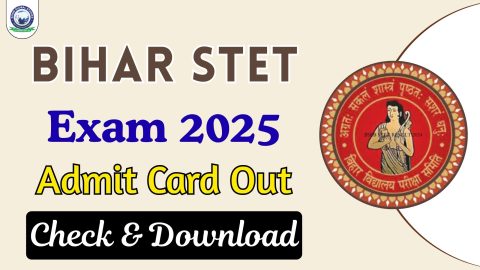JEE Main 2026 is approaching faster than you think. With over 10 lakh students competing for limited engineering seats, the pressure is real. But here’s what separates the successful candidates from the rest: strategic preparation through comprehensive test series.
While textbooks and coaching provide foundational knowledge, test series bridge the crucial gap between learning concepts and applying them under exam conditions. They transform theoretical understanding into practical problem-solving skills that make all the difference on exam day.
The journey to cracking JEE Main isn’t just about knowing the syllabus, it’s about mastering the art of performing under pressure, managing time effectively, and maintaining accuracy when every mark counts.
What Makes the JEE Test Series Essential for Success?
Real Exam Simulation
Test series recreate the exact conditions you’ll face during JEE Main 2026. From the computer-based format to the 3-hour duration, everything mirrors the actual examination environment. This familiarity eliminates surprises and reduces anxiety on the day that matters most.
Comprehensive Coverage
A well-structured test series covers all 75 questions across Physics, Chemistry, and Mathematics. Each subject receives equal attention with 20 multiple-choice questions and 5 numerical value questions, exactly as per the official pattern.
Performance Tracking
Regular testing provides clear insights into your preparation level. You can identify which topics need more attention and track improvement over time. This data-driven approach ensures efficient use of your study hours.
Key Benefits of JEE Main Test Series 2026
Enhanced Problem-Solving Speed
Time is your biggest enemy in JEE Main. With just 2.4 minutes per question on average, speed matters enormously. Regular practice through test series develops the muscle memory needed to solve problems quickly and accurately.
Students who consistently take test series typically improve their solving speed by 30-40% over three months of regular practice.
Better Time Management
Learning to allocate time effectively across subjects can make or break your JEE performance. Test series teach you when to move on from difficult questions and how to maximise marks within the given timeframe.
Exposure to Question Variations
JEE Main questions can appear in numerous formats, even for the same concept. Test series expose you to these variations, ensuring no question type catches you off guard during the actual exam.
Strategic Thinking Development
Beyond just solving problems, test series develop your exam strategy. You learn which questions to attempt first, how to use the marking scheme to your advantage, and when to make educated guesses.
Understanding the JEE Main 2026 Pattern
The examination structure remains consistent with recent years:
- Total Questions: 75 (25 each from Physics, Chemistry, Mathematics)
- Question Types: MCQs and Numerical Value Questions
- Duration: 3 hours
- Marking Scheme: +4 for correct answers, -1 for incorrect MCQs, no negative marking for numerical questions
This pattern demands specific preparation strategies that test series address systematically.
How Test Series Address Common JEE Challenges
Managing Negative Marking
The -1 penalty for wrong MCQ answers creates a psychological barrier for many students. Test series help you develop confidence in your answers and learn when calculated risks are worth taking.
Handling Numerical Value Questions
These questions require precise calculations without multiple-choice hints. Regular practice builds the accuracy needed to score consistently in this section.
Subject-wise Time Distribution
Balancing time across three diverse subjects requires practice. Test series help you discover your optimal time allocation strategy through repeated exposure.
Maintaining Focus for Three Hours
Concentration fatigue is real during long examinations. Test series build the mental stamina needed to maintain peak performance throughout the entire duration.
Choosing the Right Test Series Features
Question Quality and Relevance
Look for test series that maintain the same difficulty level and question types as actual JEE Main papers. Questions should be neither too easy nor impossibly difficult.
Detailed Solutions and Analysis
Comprehensive explanations help you understand not just the correct answer, but also why other options are incorrect and what alternative approaches exist.
Performance Analytics
Advanced analytics showing your rank, percentile, subject-wise performance, and comparison with peer groups provide valuable insights for improvement.
Flexible Testing Options
Both online and offline formats have their advantages. Online tests offer instant results and detailed analytics, while offline tests simulate the actual exam environment more closely.
Maximising Test Series Benefits
Consistent Practice Schedule
Regular testing is more beneficial than sporadic intensive sessions. Aim for at least one full-length test weekly, supplemented by subject-wise tests.
Thorough Analysis After Each Test
Spend at least as much time analysing your performance as you did taking the test. Understanding mistakes prevents their repetition.
Identifying Patterns in Errors
Track whether you’re making conceptual mistakes, silly errors, or time management issues. Each category requires different corrective measures.
Gradual Difficulty Progression
Start with slightly easier tests to build confidence, then gradually increase difficulty to match or slightly exceed actual JEE standards.
Common Mistakes to Avoid
Focusing Only on Scores
While marks matter, the learning from each test is more valuable. A low score with good analysis is better than a high score without understanding.
Neglecting Time-bound Practice
Taking unlimited time defeats the purpose of test series. Always adhere to the prescribed time limits.
Skipping Difficult Topics
Some students avoid tests covering their weak areas. This approach limits improvement and leaves gaps in preparation.
Over-reliance on Test Series
While crucial, test series should supplement, not replace, conceptual study and problem-solving practice from textbooks.
Building Exam Day Confidence
Test series build confidence through familiarity. When you’ve solved hundreds of similar problems under time pressure, the actual exam feels manageable rather than overwhelming.
This psychological advantage often proves as valuable as academic preparation. Students report feeling calmer and more focused during JEE Main after extensive test series practice.
The Path Forward
Success in JEE Main 2026 requires more than just knowing concepts—it demands the ability to perform under pressure. Test series provide this crucial training ground where knowledge transforms into results.
Every top JEE performer incorporates comprehensive test series into their preparation strategy. The question isn’t whether you need test series, but rather which one aligns best with your preparation goals and learning style.
Start your test series journey today, and give yourself the competitive edge that separates JEE success stories from near misses. Your future engineering career depends on the preparation choices you make now.




